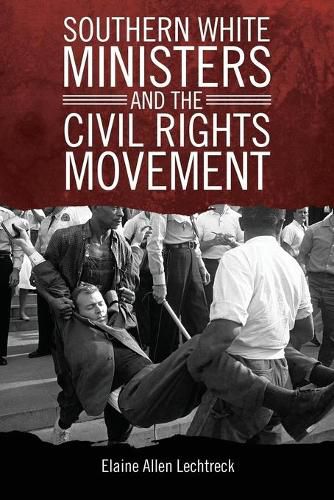Readings Newsletter
Become a Readings Member to make your shopping experience even easier.
Sign in or sign up for free!
You’re not far away from qualifying for FREE standard shipping within Australia
You’ve qualified for FREE standard shipping within Australia
The cart is loading…






This title is printed to order. This book may have been self-published. If so, we cannot guarantee the quality of the content. In the main most books will have gone through the editing process however some may not. We therefore suggest that you be aware of this before ordering this book. If in doubt check either the author or publisher’s details as we are unable to accept any returns unless they are faulty. Please contact us if you have any questions.
In 1963, the Sunday after four black girls were killed by a bomb in a Birmingham church, George William Floyd, a Church of Christ minister, preached a sermon based on the Golden Rule. He pronounced that Jesus Christ was asking Christians to view the bombing from the perspective of their black neighbors and asserted,
We don’t realize it yet, but because Martin Luther King Jr. is preaching nonviolence, which is Jesus’s way, someday Martin Luther King Jr. will be seen as the best friend the white man in the South has ever had.
During the sermon, members of the congregation yelled,
You devil, you!
and, immediately, Floyd was dismissed. Although not every anti-segregation white minister was as outspoken as Pastor Floyd, many signed petitions, organized interracial groups, or preached gently from a gospel of love and justice. Those who spoke and acted outright on behalf of the civil rights movement were harassed, beaten, and even jailed. Based on interviews and personal memoirs, Southern White Ministers and the Civil Rights Movement traces the efforts of these clergymen who–deeply moved by the struggle of African Americans–looked for ways to reconcile the history of discrimination and slavery with Christian principles and to help their black neighbors. While many understand the role political leaders on national stages played in challenging the status quo of the South, this book reveals the significant contribution of these ministers in breaking down segregation through preaching a message of love.
$9.00 standard shipping within Australia
FREE standard shipping within Australia for orders over $100.00
Express & International shipping calculated at checkout
This title is printed to order. This book may have been self-published. If so, we cannot guarantee the quality of the content. In the main most books will have gone through the editing process however some may not. We therefore suggest that you be aware of this before ordering this book. If in doubt check either the author or publisher’s details as we are unable to accept any returns unless they are faulty. Please contact us if you have any questions.
In 1963, the Sunday after four black girls were killed by a bomb in a Birmingham church, George William Floyd, a Church of Christ minister, preached a sermon based on the Golden Rule. He pronounced that Jesus Christ was asking Christians to view the bombing from the perspective of their black neighbors and asserted,
We don’t realize it yet, but because Martin Luther King Jr. is preaching nonviolence, which is Jesus’s way, someday Martin Luther King Jr. will be seen as the best friend the white man in the South has ever had.
During the sermon, members of the congregation yelled,
You devil, you!
and, immediately, Floyd was dismissed. Although not every anti-segregation white minister was as outspoken as Pastor Floyd, many signed petitions, organized interracial groups, or preached gently from a gospel of love and justice. Those who spoke and acted outright on behalf of the civil rights movement were harassed, beaten, and even jailed. Based on interviews and personal memoirs, Southern White Ministers and the Civil Rights Movement traces the efforts of these clergymen who–deeply moved by the struggle of African Americans–looked for ways to reconcile the history of discrimination and slavery with Christian principles and to help their black neighbors. While many understand the role political leaders on national stages played in challenging the status quo of the South, this book reveals the significant contribution of these ministers in breaking down segregation through preaching a message of love.